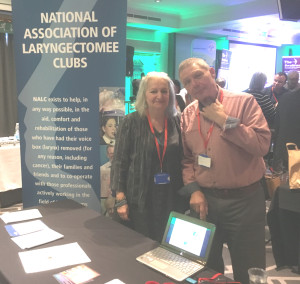In the wider community there has been much discussion about the availability of mental health services and the time it takes to secure treatment. For head and neck patients there is some recent evidence that this may be a crucial issue.
Cancer patients are surviving longer as treatments advance; however the suicide rates are significantly higher than might be expected.
In the latest issue of Cancer, an American journal, Nosayaba Osazuwa-Peters of the Saint Louis University Cancer Centre reported on the findings of his research study. This looked at the data from over 4 million cancer patients, of which more than 150,000 had head and neck cancer.
Suicide rates amongst head and neck patients were higher than for other cancer patient groups and even more significantly higher than for the general population.
Head and neck patients face not only the challenge of dealing with a potentially life-limiting illness but also the consequences of the treatment itself. This may include big problems with speech and swallowing which can limit social interaction and the ability to continue in work.
NALC is aware of concern around this issue and will be looking to work with other head and neck patient groups to try to improve the support that is available.
For more information visit the news section (25 October) of news-medical.net
